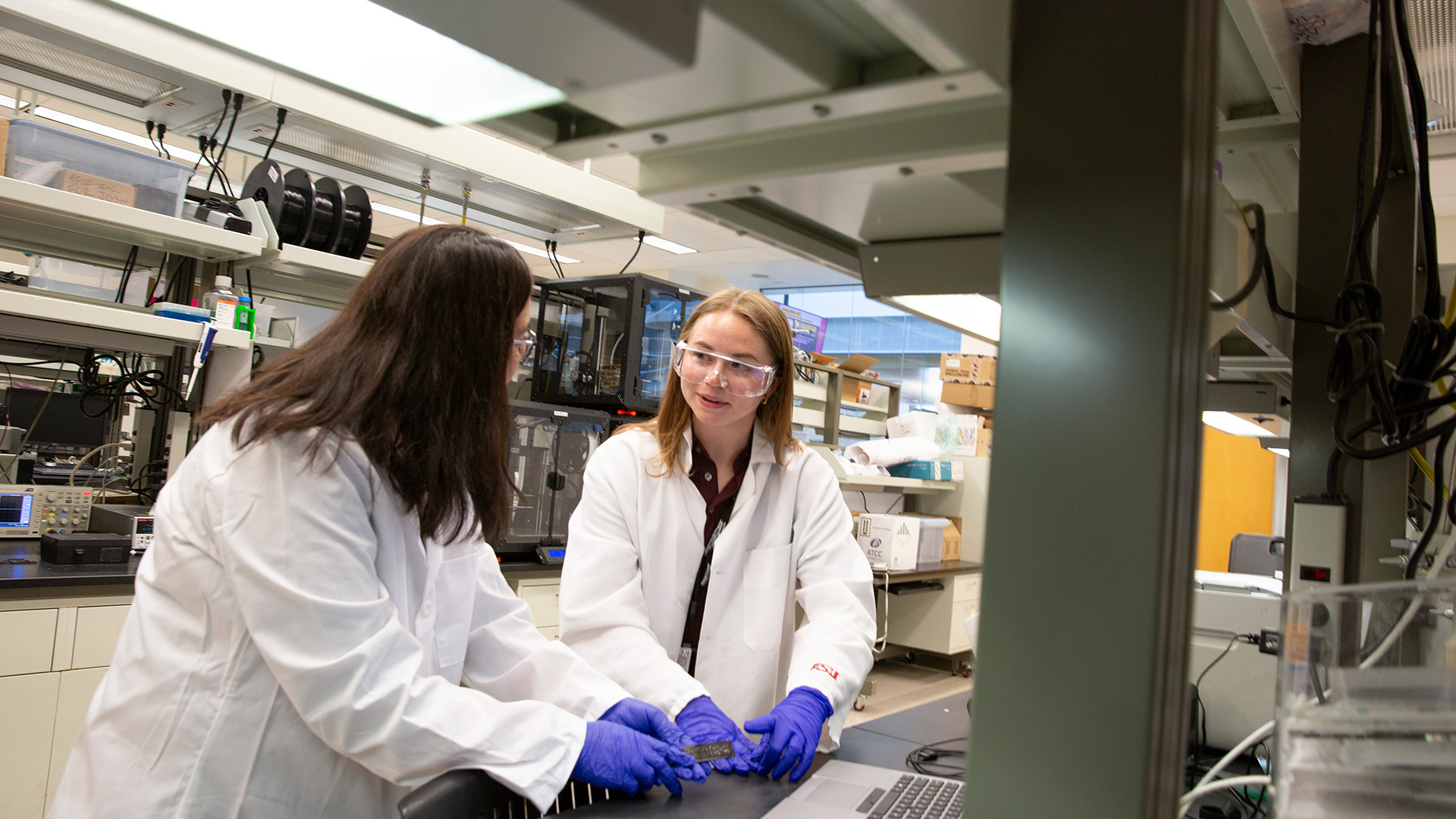Megan Berry Murphy
Biomedical engineering
Hometown: Phoenix, Arizona, United States
Graduation date: Spring 2025
MORE | Spring 2025
Automating Reagent Production Process for Use in Microfluidic Chips
Point-of-care diagnostic devices enable rapid disease detection but can require labor-intensive fabrication. Specifically, the lyophilization (freeze-drying) of reagents is a complex but necessary process that preserves the shape and enzymatic activity of reagents for use in the reaction chambers of microfluidic chips. This study aims to automate the lyophilization process by designing a 3D-printed rig to eject and transfer frozen reagent shapes. The device was evaluated for efficiency and reagent integrity, with a goal of reducing handling time, improving reproducibility, and minimizing reagent damage. These advancements enhance diagnostic device fabrication and improve accessibility to rapid and cost-effective disease testing.
Mentor: Jennifer Blain
Featured project | Spring 2025

After receiving encouragement from Jennifer Blain, a Fulton Schools electrical engineering professor, biomedical engineering master’s degree student Megan Murphy applied to join MORE. Blain now serves as Murphy’s faculty mentor for her project, in which she investigates how to make the manufacturing process of point-of-care health diagnostic devices more efficient, increasing health care access.
What made you want to get involved in this program? Why did you choose the project you’re working on?
It was my mentor who encouraged me to look into the MORE program, and I’m so glad she did. I saw that it could provide an opportunity to continue my research with additional resources and support while engaging with a larger research community at ASU. I chose this project because of my interest in point-of-care diagnostic devices and biomedical device manufacturing. This project is a great example of how engineering principles can directly impact health care by improving the design and production of medical devices.
How will your engineering research project impact the world?
Rapid and accurate disease diagnosis is the first step in effective treatment. Point-of-care diagnostics make testing more accessible by providing fast and cost-effective results outside of traditional clinical environments. For example, if you suspect you have COVID-19, the first thing you’ll likely do is take a quick COVID test at home before seeking treatment. My project focuses on automating a critical step in the production of diagnostic chips made in the lab. The goal is to streamline manufacturing to make diagnostics more widely available and ultimately improve health care accessibility.
Have there been any surprises in your research?
One of the biggest surprises I’ve encountered in my research was realizing how small design choices can dramatically impact the performance of my device. This experience has emphasized the importance of precision and continuous refinement in engineering design. It has also taught me to approach design challenges with a more detail-oriented mindset.
How do you see this experience helping with your career and advanced degree goals?
This experience has strengthened my skills in biomedical device manufacturing and process engineering, areas I want to pursue in my career. Through this research, I have gained hands-on experience in prototyping, troubleshooting and optimizing engineering systems, all of which are valuable skills for both industry and academia. Taking a project from concept to implementation has given me a deeper understanding of the design process and is a valuable experience for anyone interested in pursuing engineering.
Why should other students get involved in this program?
Participating in the MORE program has given me the chance to work closely with faculty mentors and collaborate with peers while gaining hands-on research experience. For other master’s degree students looking to get involved in research, this program is a great opportunity to develop relevant skills and contribute to meaningful advancements in their field. Additionally, having the ability to present my research and engage with a broader academic community at ASU has helped with my communication skills and potentially opens doors for future collaborations and career opportunities.



